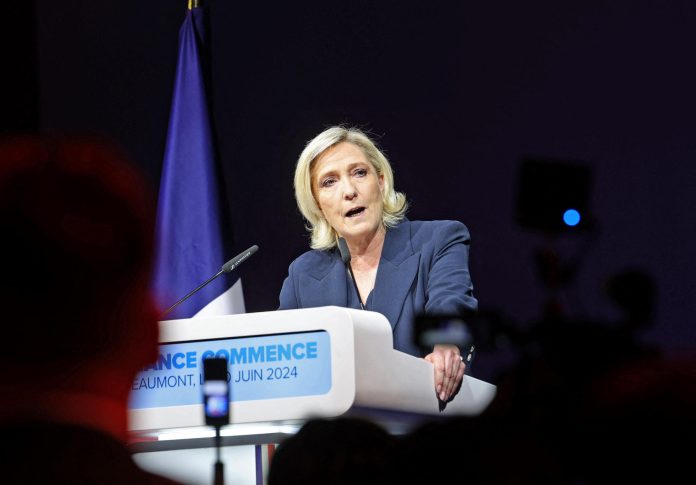Marine Le Pen’s National Rally (RN) emerged as the frontrunner in France’s high-stakes legislative elections, marking a historic shift towards the far-right. President Emmanuel Macron’s decision to call snap elections resulted in a significant setback, with his ruling coalition falling to third place, behind the left-wing New Popular Front (NFP).
Le Pen’s RN secured 33.2% of the vote, while the NFP garnered 28.1%. Macron’s Ensemble alliance trailed at 21%, followed by the conservative Les Républicains at 10%. Despite RN’s lead, they fell short of an absolute majority, setting the stage for a second round of voting.
The elections witnessed unprecedented voter turnout, the highest in three decades, underscoring the nation’s heightened political engagement. Le Pen’s victory in the first round signifies a potential shift in France’s political landscape, with the possibility of a far-right government since World War II.
Macron’s snap election decision, made against the advice of his senior allies, backfired, revealing the erosion of his political capital after seven years in power. The high turnout and volatile campaign saw Macron’s coalition struggling against the united left and the surging far-right.
Le Pen called on her supporters to secure an “absolute majority” in the second round, which could see RN leader Jordan Bardella becoming prime minister, ushering in a cohabitation government. The outcome of the second round remains uncertain, hinging on alliances and voter mobilization.
As the July 7 vote approaches, Macron’s weakened bloc must navigate a complex political landscape, balancing between left-wing cooperation and staunch opposition to the far-right.
#FrenchElections2024 #MarineLePen #EmmanuelMacron #NationalRally #NewPopularFront #PoliticalShift #FranceVotes


